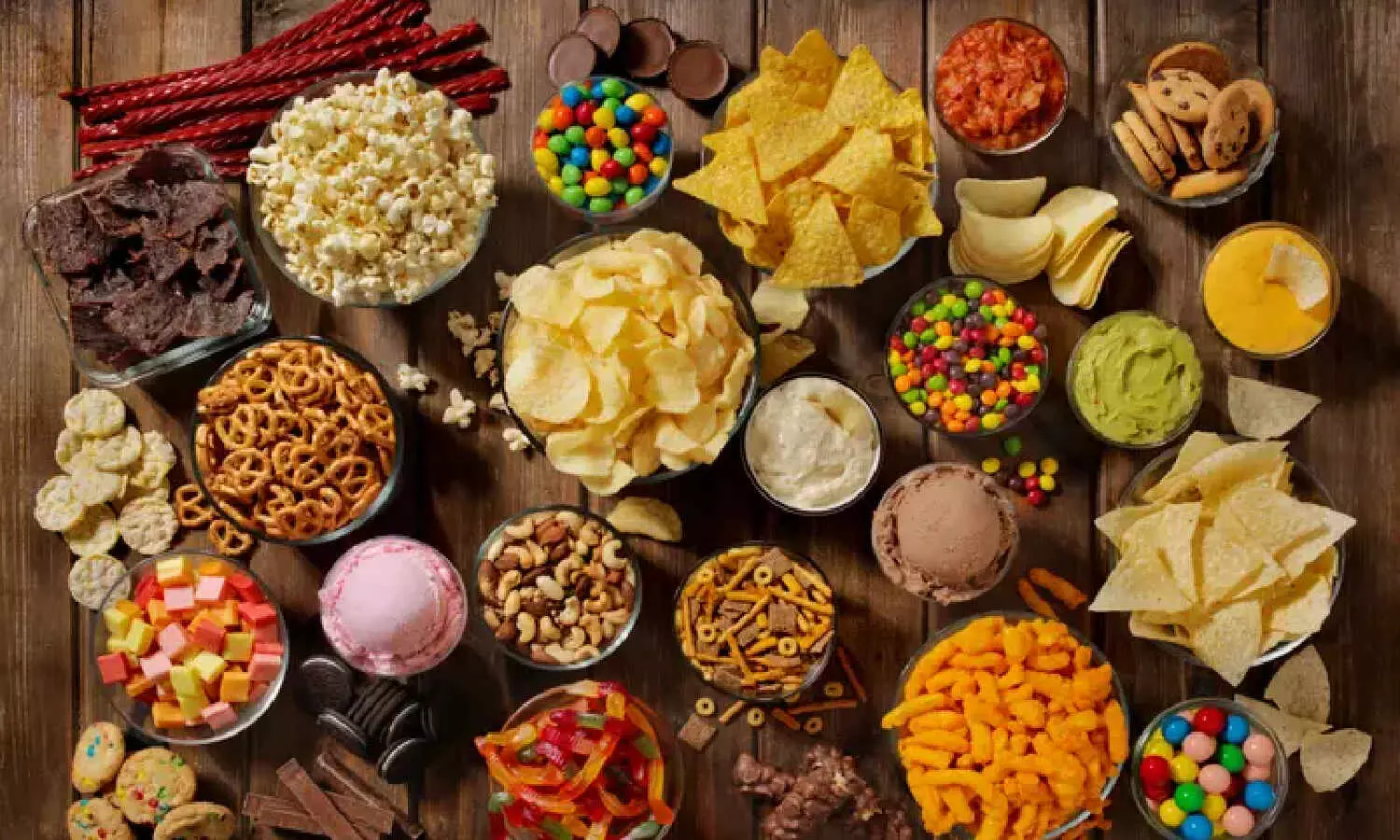How ultra-processed foods have increased risk of cardiovascular diseases
ICMR has listed bread, butter, milk-based health drinks, and cooking oil as ultra-processed foods as per the dietary guidelines
By Neelambaran A
Representation Image of ultra processed foods
Hyderabad: Ultra-processed foods or junk foods are considered the prime reasons for obesity among people in India. Such food items contain sugar, salt, fat, and artificial colors or preservatives.
Besides having low nutritional value and with higher use of additives, ultra-processed foods could lead to obesity, cardiovascular diseases, stroke, type 2 diabetes, and fast ageing.
With junk foods readily available even in rural areas, obesity being a condition of the economically and socially forward sections has become a thing of the past. Men, women, and children from all cross sections of the population, irrespective of their profession and socio-economic status are becoming obese.
Ultra-processed foods are the leading reason for obesity
Indian Council Medical Research (ICMR) has listed bread, butter, milk-based health drinks, and cooking oil as ultra-processed foods as per the dietary guidelines.
The most common ultra-processed foods include packaged cookies, sugary drinks, breakfast cereals, ready-to-eat meals, refined flour, frozen foods, chips, biscuits, mayonnaise, commercially produced ice cream and cheese, fries, and packaged snacks.
“Ultra-processed foods are the top leading cause of obesity in India and across the globe. Modernization and westernization of food habits along with sedentary lifestyle are increasing obesity”, said Dr. Kavya Dendukuri, lead consultant, hepatologist, and gastroenterologist at Kamineni Hospitals, Hyderabad.
Exposure to the international market
With the arrival of international food brands in India and the sale of food items through general outlets have played a role in increasing obesity. Consumption of level C foods, which are high in sugar and salt, excessive refining of flours, and exposing the food items to high temperatures and pressure.
“The Indian markets are exposed and tied up with global eatery markets selling processed foods with saturated fats, red meat, fructose-rich and packaged foods. All these things along with an unhealthy lifestyle are contributing to the increase in obesity”, Dr Kavya said.
Affordability and availability of UPF
Until a few years ago, ultra-processed foods were available in metro and cosmopolitan cities. With rapid urbanisation such food items have reached even the remotest part of the country.
“Ultra-processed foods are available in the villages. Everyone, including the lower and lower-middle-class people, has access to such foods. They are available at a relatively lower cost as well”, said Dr. Leenatha Reddy J, consultant pediatric endocrinologist at Rainbow Children’s Hospital, Hyderabad.
Posing a severe threat to health
Reports have emerged of the increasing risk of cardiovascular diseases due to higher consumption of ultra-processed foods. The risk of death from cardiovascular diseases increases by 50% while a 32% increase in cancer, gastrointestinal, and respiratory problems are also identified.
“The use of sugary drinks, deep fried items in reused oils, highly refined oil with trans fats, and social eating habits contribute to health concerns”, Dr. Kavya said.
No poshan control
The increase in obesity is increasing among children as well, with around 12 million children found obese. The lack of poshan control and increased screen time are cited as primary reasons for obesity.
“Earlier, we had a schedule for food consumption. Now the situation has changed with people consuming food at times of their convenience. Even a one-year-old child is given a mobile phone for faster food consumption. Such conditions along with lack of physical activity increase obesity”, Dr Leenatha said.
The ultra-processed foods are high in calories but carry very low essential nutrients. Since they come in packets that are easy to handle, people resort to higher consumption despite the higher contents of additives.
With obesity being considered an epidemic, the call for control of the level of sugar, fat, and salt in ultra-processed foods, their labeling, and exposing the threats have garnered attention.